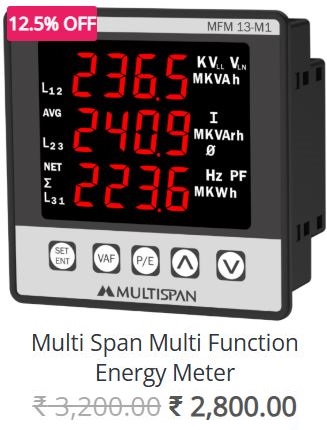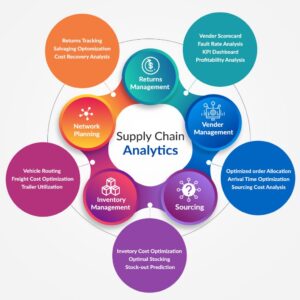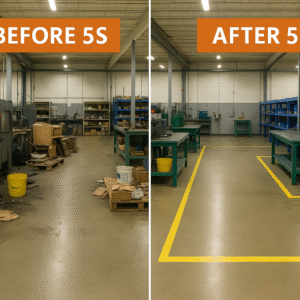In today’s competitive industrial landscape, optimizing processes and improving operational efficiency are crucial goals for businesses aiming to enhance productivity, reduce costs, and maintain quality standards. One of the key enablers of these objectives is the use of analyzers in various industries. Whether in manufacturing, chemical production, or energy sectors, analyzers provide real-time data and insights that guide decision-making, boost performance, and ensure that processes run smoothly.
Let’s delve into how analyzers contribute to process optimization and efficiency across different industries.
What Are Analyzers?
Analyzers are sophisticated instruments designed to measure, monitor, and analyze specific parameters or variables within a process. These parameters can include temperature, pressure, flow, chemical composition, and more. The data gathered by analyzers provides valuable information that helps industries refine their operations, improve product quality, and prevent costly downtime.
The Role of Analyzers in Process Optimization
1. Real-Time Data for Immediate Adjustments
Analyzers provide real-time feedback on process conditions, enabling operators to make immediate adjustments when needed. This is particularly critical in industries where conditions fluctuate frequently, such as in chemical or petrochemical plants. For example, in a distillation process, an analyzer might monitor the concentration of a particular compound, allowing operators to adjust flow rates and temperatures to maintain optimal separation efficiency.
2. Enhancing Product Quality and Consistency
Analyzers help ensure that the output of a process consistently meets desired specifications. By continuously monitoring critical parameters, analyzers can detect even minor deviations from target values. This capability is essential in sectors such as pharmaceuticals, food production, and semiconductors, where product quality and consistency are non-negotiable. For example, in a food processing plant, analyzers can detect variations in ingredients or final product composition, helping to maintain quality and avoid defects.
3. Predictive Maintenance and Reduced Downtime
Unplanned downtime can be one of the most costly challenges in any industrial process. Analyzers, equipped with advanced algorithms and monitoring capabilities, can predict potential failures before they occur. By monitoring equipment health—such as vibrations, temperature changes, or gas emissions—analyzers can trigger maintenance alerts when something goes wrong or when performance begins to decline. This allows operators to take corrective actions early, reducing unscheduled downtime and extending the lifespan of machinery.
4. Energy Efficiency and Resource Optimization
Energy consumption and resource usage are major factors influencing the efficiency of any industrial process. Analyzers can help optimize both by ensuring processes are running as efficiently as possible. For instance, in a power plant, an analyzer might monitor the combustion process and adjust the fuel-air ratio to maximize energy output while minimizing waste. In other industries, analyzers help track the consumption of raw materials, water, and energy, providing valuable data that drives more sustainable and cost-effective operations.
5. Regulatory Compliance and Safety
In industries that deal with hazardous materials, environmental regulations, and safety standards, analyzers play a vital role in ensuring compliance. Gas analyzers, for example, help monitor air quality or the release of toxic substances, helping companies avoid fines and maintain safe operating conditions. Furthermore, by ensuring that processes stay within regulated limits, analyzers contribute to workplace safety, reducing the risk of accidents, leaks, or other hazardous events.
Applications Across Industries
- Chemical Industry: In chemical processing, analyzers monitor reactions and chemical concentrations to ensure processes remain efficient and safe. They enable process adjustments based on real-time chemical composition data, improving reaction rates and reducing energy consumption.
- Oil and Gas: For oil refining and gas processing, analyzers measure the properties of crude oil, natural gas, and refined products. These tools allow companies to optimize refining processes, improve product yields, and comply with environmental regulations.
- Pharmaceuticals: In pharmaceutical manufacturing, analyzers ensure that drug formulations meet precise specifications. They enable accurate mixing, blending, and separation processes, ensuring product consistency and quality while reducing waste and production costs.
- Food and Beverage: Analyzers monitor everything from temperature to pH levels in food production. They help improve product quality and consistency, reduce waste, and ensure compliance with health and safety regulations.
- Energy Sector: In power plants, analyzers optimize fuel combustion and monitor emissions to ensure maximum energy efficiency and regulatory compliance. They also monitor boiler performance, turbine efficiency, and waste heat recovery.
Conclusion
The use of analyzers is central to driving process optimization and efficiency across various industries. By providing accurate, real-time data on a wide range of operational parameters, analyzers help businesses identify areas for improvement, maintain product quality, reduce costs, and stay compliant with safety and environmental regulations. As industries continue to evolve and embrace digital transformation, the role of analyzers in enhancing productivity and operational performance will only grow more significant. By integrating advanced analyzer systems into their operations, companies can stay ahead of the curve and maintain a competitive edge in their respective fields.
For businesses looking to enhance process efficiency, reduce waste, and improve performance, investing in state-of-the-art analyzer technology is not just an option—it’s a necessity.

















